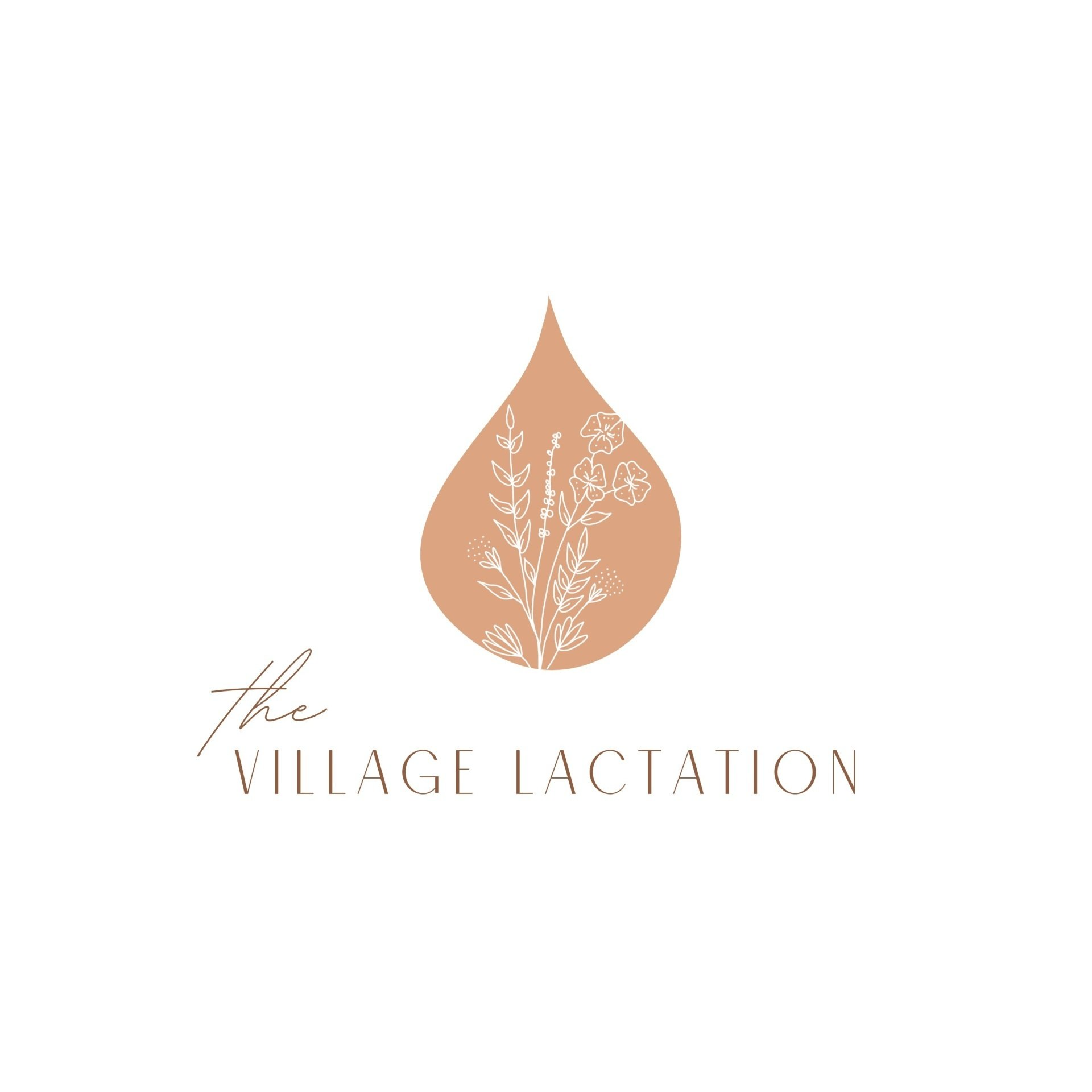Reach Us At
Join our VIP e-mail list to receive the latest specials and news from Shop Local Delmarva.
Contact Us
Connect
Herbally Nutritious Health Benefits of 20 Herbal Teas
Story by Yvonne Miller
Oct 06, 2021
They can help lull you to sleep, soothe an upset tummy, or calm rattled nerves. Herbs have all sorts of healing and medicinal powers and are a terrific source of vitamins and minerals. But did you know that herbal "tea" isn’t made from tea leaves at all! Rather than using the word tea, Europeans use the word tisane to describe herbal teas, which is slightly more precise because herbal tea is an infusion or blend of leaves, fruits, bark, roots or flowers of almost any edible plant, which is then extracted into hot water. When we drink herbal teas, we consume all the plant’s benefits in an easily digestible form.

In many cases, more benefits come from a good herbal tea than a vitamin pill! You also get hydration and aromatherapy. You certainly can’t claim that about a pill.
One mistake many people make when steeping their tea is to leave the pot or the cup uncovered. This allows vital essential oils to escape through the steam. Always be certain to cover the container while your herbs are sitting in the hot water to retain as many valuable nutrients as possible. Also, be sure that you are steeping your teabags or loose tea long enough: a minimum of 10 minutes, but 15 would be even better. Reheat your tea for a few seconds if it gets cool. Drinking tea or herbal tea everyday can help make significant changes to your skin, your mood, your energy and overall sense of well-being.
The Main Benefits of All Herbal Teas
The health benefits of various herbal teas depend on their composition. Sometimes, this is just a single ingredient, while other times it is a combination of a few herbs and flowers. There are many different types of herbal teas, but several have similar benefits. The polyphenols in herbal teas load them up with antioxidants that benefit your body in several ways. Antioxidants nurture a healthy lifestyle and give you the boost of energy you need to get through your busy day. While our bodies naturally produce antioxidants to help combat free radicals caused by oxidative stress, sometimes the antioxidants we produce aren’t enough, so we need a boost from other sources as a supplement. Because free radicals and oxidative stress are one of the chief causes of cancer, it is critical to neutralize them with antioxidants.
Herbal teas have different benefits depending on the plants used to create them. For example, chamomile has a calming effect, while ginseng will boost your energy. Some teas like hibiscus help balance blood pressure. There are a lot of herbal tea remedies, and usually one that can help with whatever health condition concerns you.
Drinking herbal tea on a regular basis without sugar or honey helps decrease body weight and body mass. It may also help reduce the risk of a heart attack and reduce blood sugar. The caffeine content in certain herbal teas can give you a boost of energy, while others will help you relax after a hard day at work.
Tisanes (herbal teas) can be as cheap as those growing in your yard or as expensive as saffron at $5,000 per lb. Here is a list of some favorites and how they could benefit you.
1. Chamomile Herbal Tea
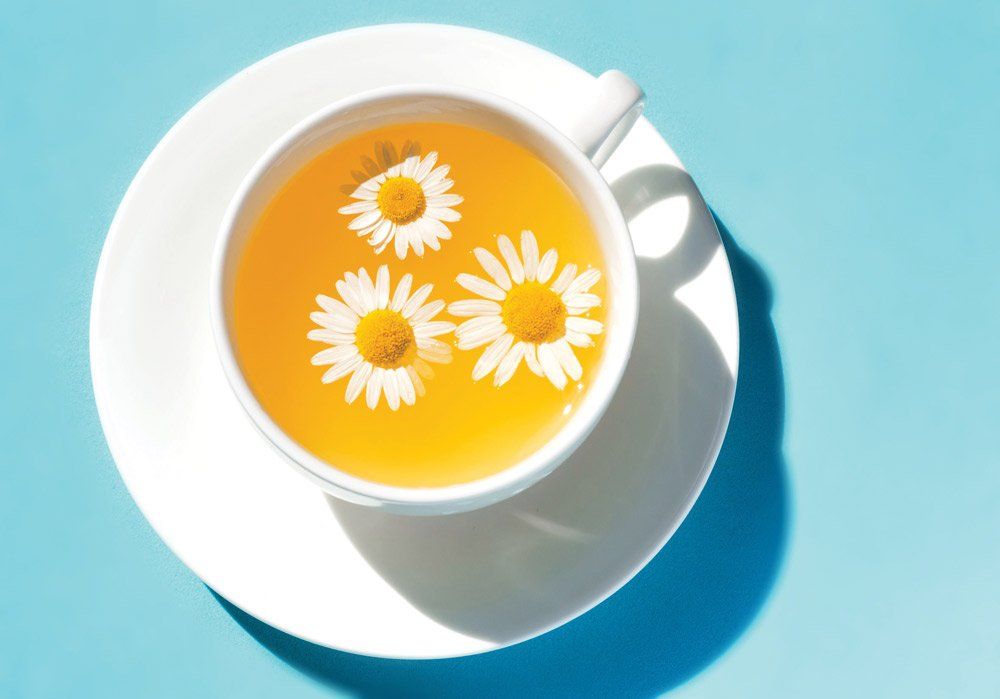
Chamomile originated in Western Europe, India and Western Asia, but is now popular in the United States. It grows in your garden, bringing great visual appeal and sedative qualities, but also grows freely in fields and other sunny, well-drained areas. Chamomile has a bittersweet, honey-like taste.
Benefits include:
- Helps calm the parasympathetic nervous system
- Reduces your body’s stress and tension
- Supports digestion and can treat digestive conditions
- Helps boost your immunity and fights bacteria
2. Cinnamon Herbal Tea
Cinnamon is a spice acquired from the soft, inner bark of a variety of tree species that grow in Sri Lanka and South India. It has a robust taste with a sweet finish. Cinnamon’s scent and flavor come from its essential oil and main element, cinnamaldehyde, which is a bioactive compound with many health benefits. Reports date the use of cinnamon as far back as 2000 B.C., and it is still widely used today.
Benefits include:
- Improves cognitive speed, increases focus and encourages the growth of neural pathways
- Calms an upset stomach, improves digestive health
- Helps boost the immune system
3. Lemongrass Herbal Tea
Lemongrass can be grown easily in your yard or inside in flower pots. It can give more health benefits than a vitamin pill and its mildly sweet, citrus taste is a wonderful flavoring for food.
Benefits include:
- Helps the body rid itself of cholesterol, toxins, fats and uric acid
- Helps lower blood pressure
- Helps relieve fluid retention
- Great for the health of your skin and hair; a rich source of vitamins A and C
4. Dandelion herbal tea
Dandelion herbal tea is derived from the yellow dandelion flower. It is easy to make by boiling the flower petals to extract their oils. Dandelion has a coffee-like taste but is less bitter. The flower's root can be used to make coffee.
Benefits include:
- Helps with weight loss; promotes breakdown of fat and cholesterol
- Helps improve digestion; stimulates gastric acids
- Helps promote strong bones; contains calcium, zinc, iron and magnesium
- Helps protect against anemia; contains iron
- Diuretic; helps eliminate excess water and bloating
5. Eucalyptus Herbal Tea
Native to Australia, eucalyptus comes from a tall, fast-growing tree with large and thick leaves. The leaves house a strong fragrance and oil that can be extracted and used for a variety of medical needs. To make a tea from eucalyptus, the leaves are simply dried and steeped to produce a minty, licorice taste.
Benefits include:
- Helps stimulate the immune system and improves respiratory circulation
- Helps fight against respiratory infections
- Soothes stiffness and swelling brought on by arthritis and rheumatism with anti-inflammatory properties
- Lowers blood sugar and dilates arteries
- Helps boost energy, decrease emotional stress and mitigate mental fatigue
6. Fennel Herbal Tea
Fennel has been used for medicinal and culinary purposes since around 800 B.C. In ancient Greece and Rome, it was used for a variety of purposes such as a dieting agent, a muscle enhancer and to treat kidney stones. Greek doctors even used the leaves and seeds of fennel to create a tea to help nursing mothers increase their milk supply. Fennel tastes like licorice.
Benefits include:
- Helps reduce the effects of food poisoning
- Helps reduce acid reflux when you drink after meals
- Helps increase menstrual flow
- A treatment for heartburn
- Diuretic; helps eliminate excess water and bloating
7. Violet Herbal Tea
The most popular violet for medicinal purposes is the sweet violet, which is otherwise known as Viola Odorata. Violets have been studied since the late 1800s, and have proven themselves to be equal to oranges and spinach in terms of vitamin C and A respectively. Violet tastes sweet and floral.
Benefits include:
- Helps ease severe headaches
- Helps relieve bronchitis, joint and muscle inflammation and skin rashes
8. Uva Ursi (Bearberry) Herbal Tea
Uva ursi is a plant whose leaves have been used for centuries as an herbal medicine. The name “uva ursi” translates into “bear’s grape” in Latin. This is in reference to the fruit on the plant that is a popular food for animals in the wild, particularly bears. Uva ursi is mildly sweet.
Benefits include:
- Can be used as an antibacterial treatment for bladder and kidney problems
- Helps the body rid itself of bloating and water retention
- Helps boost the immune system
9. Thyme Herbal Tea
Thyme is a garden herb that has been used since ancient times for both medicinal and culinary purposes. Thymol, thyme’s active ingredient, is a powerful antioxidant which is great for the body. Thyme is savory and aromatic.
Benefits include:
- Sore throat remedy; an expectorant and disinfectant
- May lessen the duration of asthma attacks
- An effective remedy for gastrointestinal discomfort and diarrhea
- Helps reduce the pain of a headache
10. Ginseng herbal tea
Originally from Korea, this tea is made from the root of the ginseng plant. There are various types of ginseng, including American, Asian and Siberian, depending on the origin of its growth. Ginseng has a bitter taste.
Benefits include:
- Known for its anti-carcinogenic components
- Helps fight obesity by stabilizing sugar levels
- Eases stomach problems and constipation
11. Spearmint herbal tea
Spearmint belongs to the mint family. It can grow up to one meter high in many different temperate climates. The plant has a thick stalk and sharp leaves, which are characteristics that give spearmint its name. It is very important to avoid boiling spearmint, as this changes its chemical composition. Spearmint is fragrant, sweet and minty.
Benefits include:
- Helpful in treating colic and gas, nausea and vomiting
- Improves your digestion and nutrient absorption
- Repels infections when used topically
12. Peppermint or Mint Herbal Tea
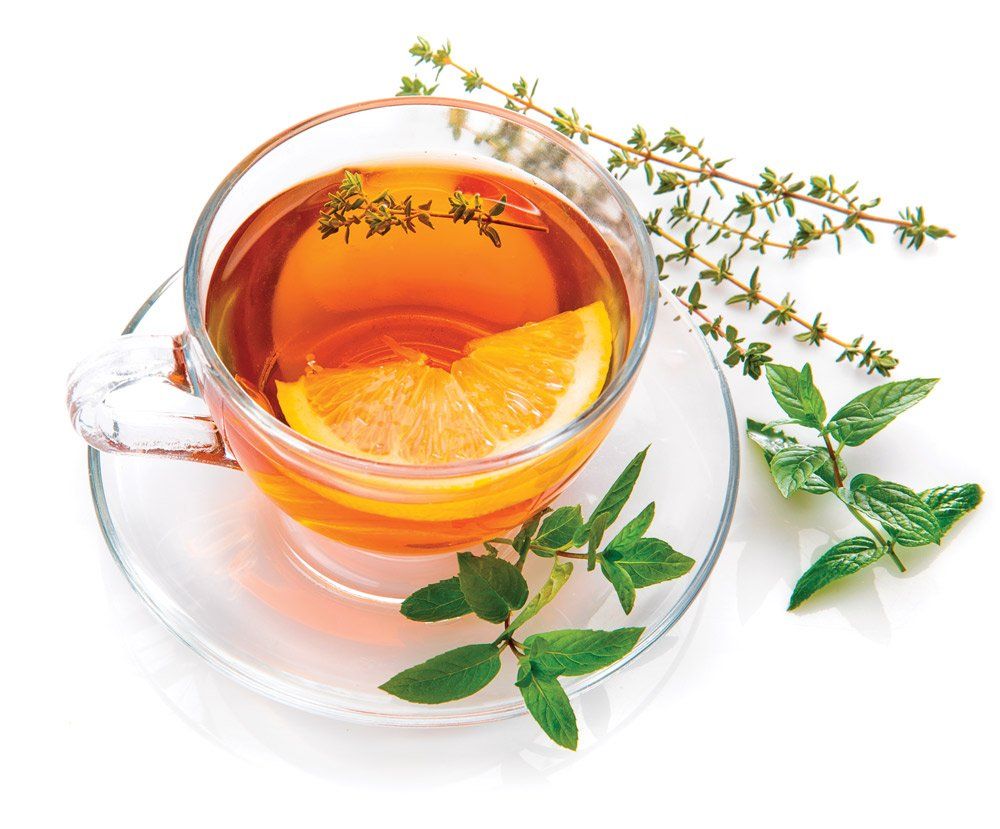
Menthol is the primary element of mint. It is easily grown in your backyard and makes a wonderful cold or hot tea. Mint gives a menthol sensation and a minty and refreshing taste.
Benefits include:
- Cools the body in cases of fever
- Great remedy for gastrointestinal issues
- Eases nausea and may prevent vomiting
- Helps with digestion and bowel movements
- Effective during motion sickness
13. Jasmine herbal tea
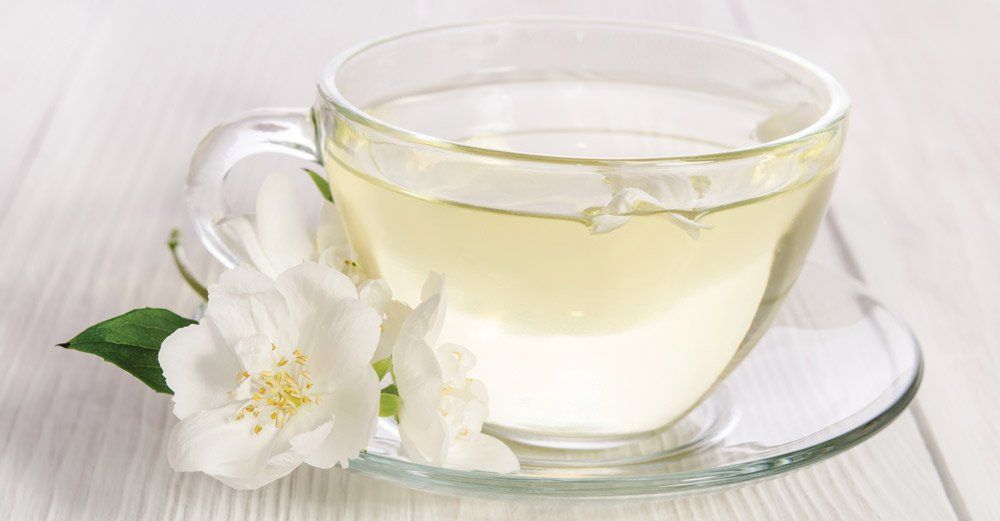
Jasmine petals are grown and harvested in high elevations. The catechins in jasmine tea are heart healthy and can help lower cholesterol. It also helps the body metabolize glucose, which is important in the prevention of diabetes. They can also decrease inflammation in your veins and arteries which could lead to a heart attack or stroke. Jasmine is aromatic and refreshing.
Benefits include:
- An effective weight loss aid
- Increases metabolism and nutrient absorption
- Helps lower cholesterol
14. Ginger herbal tea
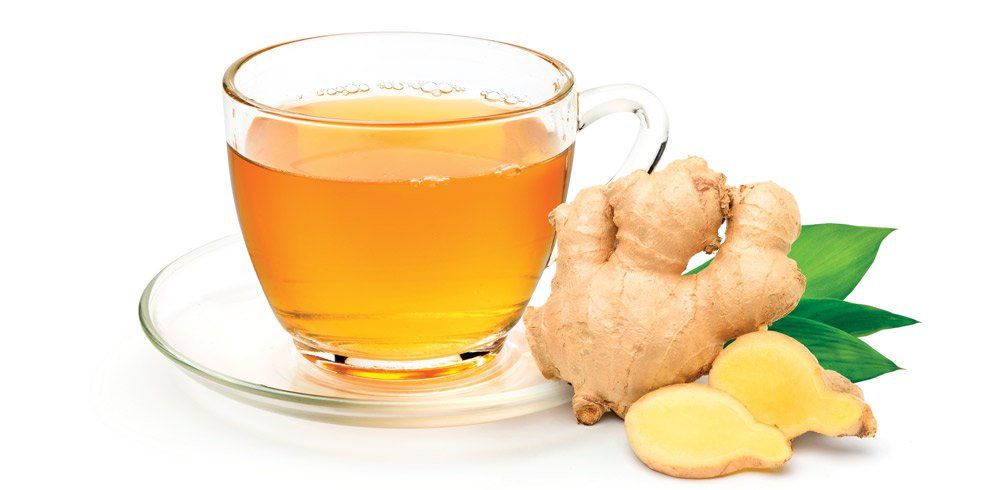
Ginger is a spice native to Southeast Asia. There are many ways to consume ginger and it is often used in cooking. It can be used as a marinade or juice, used raw or pickled, and of course, for tea. Ginger is spicy, pungent and slightly sweet.
Benefits include:
- Helps relax intestines in cases like irritable bowel syndrome
- Prevents heartburn
15. Lemon Balm herbal tea
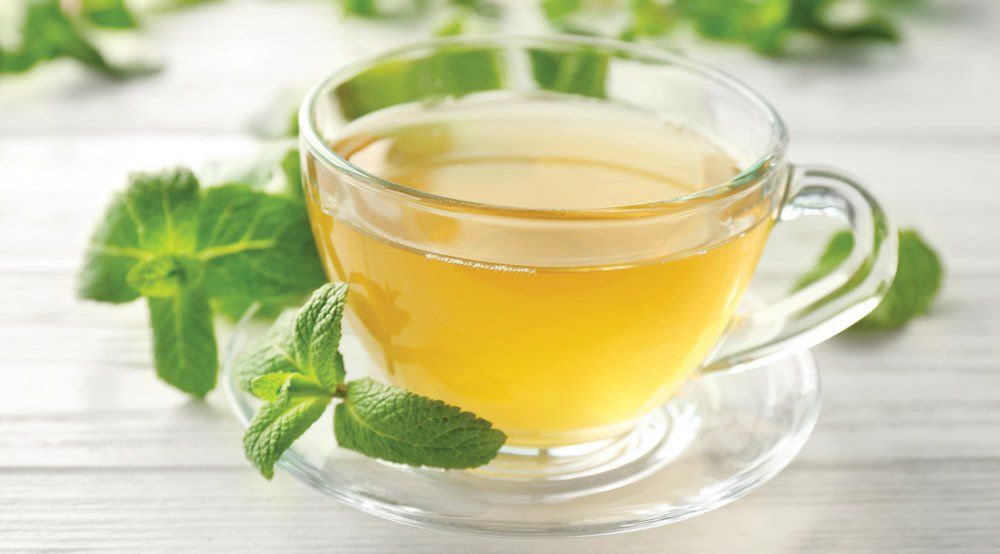
A member of the mint family, lemon balm is native to Europe. It has been used for hundreds of years to reduce anxiety, promote sleep and aid in digestion. Lemon balm is often used to make toothpastes, scented oils and perfumes. Lemon balm is minty and refreshing.
Benefits include:
- Helps reduce insomnia
- Can lessen agitation caused by Alzheimer’s disease
- Antioxidants help fight the herpes virus and relieve cold sores
16. Oregano Herbal Tea
Oregano is not just an herb for Italian dishes, it makes a great herbal tea too. Part of the mint family, oregano is a perennial herb used for culinary and medicinal purposes that is known by its purple flowers and spade-shaped dark green leaves. Oregano has a warm, aromatic, bitter taste.
Benefits include:
- Helps treat health conditions such as osteoporosis and arteriosclerosis
- Helps prevent blemishes, age spots and wrinkles
17. Marjoram herbal tea
Marjoram is a perennial herb related to oregano, originally from the Mediterranean. Marjoram has a bitter taste.
Benefits include:
- Promotes digestive health
- Helps manage diabetes by improving insulin tolerance
- Helps with high blood pressure by widening arteries
18. Echinacea herbal tea
This herbaceous, perennial plant is part of the daisy family. Its nine different species are all used in their entirety for their different phenolic compounds, which provide health benefits. But consuming too much Echinacea can negatively impact your T-cells. Echinacea has a mildly minty, citrus taste
Benefits include:
- Helps ease bronchitis
- Strengthens the immune system
- May be used as a topical pain reliever
19. Kava herbal tea
Kava is shrub-like in appearance and can be found in Western Pacific regions. Kava contains many organic compounds and nutrients that make it unique, such as fiber, minerals, water, protein, starc, and kavalactones. Kava tastes earthy.
Benefits include:
- Helps people reduce their cravings for smoking
- Treats anxiety by balancing hormones
- Helps prevent premature aging
- Can help prevent urinary tract infections
20. Catnip (Nepeta Cataria) Herbal Tea
Found in Europe and Asia, catnip can be grown in the U.S. It prefers well-drained soil and partial shade. Often used for its calming effects on cats, it also has benefits for humans. Its potency comes from a specific terpenoid called nepetalactone. Catnip has a citrus and grassy taste with a hint of mint.
Benefits include:
- Helps induce a relaxed mood which aids sleep
- Used to treat colds
- Helps reduce cramping and gastrointestinal discomfort
- For children, it aids with colic and motion sickness
This list doesn’t scratch the surface. Cherry, blueberry and other fruit teas and their benefits are not even included. Consult with your physician to be sure the tea you drink is compatible with your medications. These cautions aside, nutritionists say to drink up and enjoy the health benefits of tea. “You want to incorporate healthy beverages in your diet on a more regular basis to benefit from these health-promoting properties,” says Diane L. McKay, PhD, a Tufts University scientist who studies antioxidants. “It’s not just about the foods; it’s about what you drink, as well, that can contribute to your health.”
Share this Post












